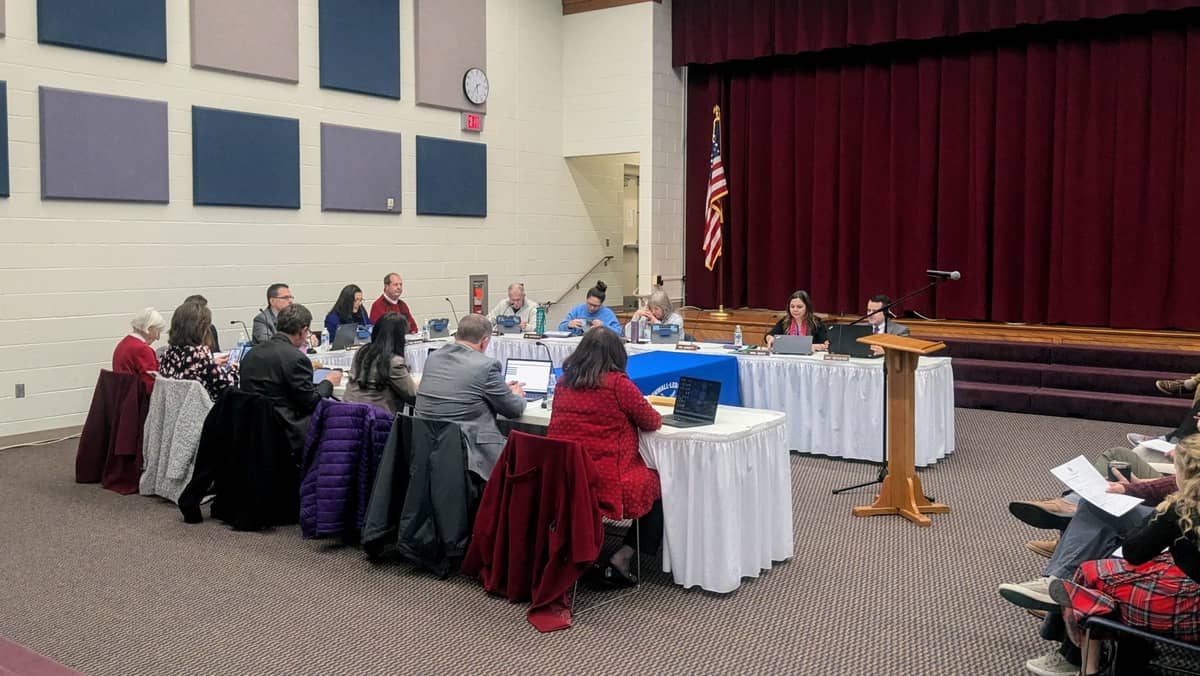With the state’s new fiscal year beginning on July 1, the county commissioners approved Thursday the 2021-22 county provider contracts for three county agencies whose funding is contingent on commonwealth funding formulas.
Department heads for Mental Health/Intellectual Disabilities/Early Intervention (MH/ID/EI), Area Agency on Aging and Drug and Alcohol programs gave their provider contracts funding proposals to the commissioners, which were all approved unanimously.

For the MH/ID/EI department, administrator Holly Leahy presented provider contracts totalling nearly $3.84 million, an increase of $157,693 compared to the previous fiscal year. While some contractor services saw a decrease over the previous year, at least two witnessed an increase in funding.
“In our mental health program, we did have an increase of about 29 percent and our support services contracts increased by about 5.6 percent,” noted Leahy.
Leahy also presented several project related items for review, including an outstanding contract that was amended for the early intervention program in fiscal year 2019-20 in the amount of $6,487.
“This is due to increased utilization for the services,” said Leahy. “These expenses were covered by the agreed budget, so we are not asking for any increased county funding to cover the amendment.”
The commissioners also approved 21 contract amendments for fiscal year 2021, totaling $112,367, for increased utilization of services in the ID and EI programs.
“All of these expenses will be covered under our current approved budget and block grant funds. We are not requesting any additional county funds,” Leahy noted.
As part of a budget review for fiscal year 2021-22, Leahy said expenses are projected to total $7.74 million, which is $781,000 less than the previous year with projected revenue of just over $7 million, which would be a decrease of $75,000 from fiscal year 2020-21.
“We are projecting an overview agency deficit of $691,000 that’s represented in mental health in the amount of $478,000 and early intervention in the amount of $213,000,” said Leahy. “Our required county match, based upon our allocations, is $351,000. So we’re looking at county support for 2021 at $600,000 and we believe we will be able to stay within that $600,000 and that we will, at the end of this year, be able to review the budget for potential county support for 2022.”
Commissioner Jo Ellen Litz asked if the $600,000 was more or less from the previous year, to which Leahy replied that it was the same.
“This upcoming year and the next year will be transitional years for us as we decrease our costs for retirement and direct costs related to the privatization of targeted case management,” Leahy said. “So for this year it remains at $600,000, but then again, we do believe as we progress through the next several years that amount will decrease.”
At the request of Jamie Wolgemuth, chief clerk/county administrator, Leahy provided an update on the transition to Service Access and Management (SAM), a Reading, Berks County company that will provide targeted case management services for Lebanon County residents, beginning July 1.
Read More: Going private: County outsources a portion of mental health services
“It is going extremely well,” Leahy told the commissioners. “The provider is going through all of their required tasks very quickly and they already have their license through the Department of Human Services…They have already accepted 177 cases to be transferred over for individuals and families who have completed the release of information to have SAM as their provider… Everything is moving very quickly.”
Carole Davies, administrator, Area Agency on Aging, presented two items to the commissioners: a contract amendment for the current fiscal year in the amount of $32 and 35 contracts for fiscal year 2021-22 in the amount of $1.13 million.
“There are no significant changes in the types or array of services we are providing that were in the prior fiscal year,” Davies said, “and most of the contracts are at the same rate per unit as in the current (fiscal) year.”
Davies noted that increases aren’t typically applied until after her department is notified by the state that cost of living increases have been approved, which normally happens after July 1.
In her review of the department’s new budget, she said total revenue and expenses are projected to be $4.1 million, an increase of 1 percent over the prior year.
As part of the budget review, she noted that the state was required to change its interstate funding formula, which is the formula used to allocate federal funds to all aging agencies in Pennsylvania. Based on that formula, Lebanon County is slated to receive an increase in funding in the coming fiscal year.
“The additional funds we will receive will be phased in gradually over time and we will have an increase of over $100,000,” said Davies. “But for this year the increase is just over $20,000.”
Based on that information and since the agency will receive some monies because of the COVID-19 global pandemic, the department is not requesting any county funding, Davies added when asked by commissioner Robert Phillips to state that for the record.
Davies told the commissioners there are a number of county residents who qualify for in-home personal care but that there is a contracted service provider worker shortage across Pennsylvania that’s preventing that service from being offered to applicants.
“In accordance with Department of Aging policy, we are going to move to establish a formal waiting list,” Davies said. “Right now they are waiting informally but we want to formally document the fact that people are waiting for these services.”
It was then noted that there are between 50 and 60 people currently receiving personal care in Lebanon County with another 23 who have been on the waiting list since the end of May.
Further complicating personal care requests for residents is the recent closing of two adult day care centers, one outside of Lebanon County and the other at Londonderry Village, which ended last September, according to Davies.
During the third presentation, James Donmoyer, director, Lebanon County Drug and Alcohol program, discussed contracts for fiscal year 2021-22, which included a list of 43 providers administering services at 65 facilities.
While no new facilities nor new providers are being added for the coming fiscal year, six new programs are slated to be added to those provider facility contracts, according to Donmoyer.
Donmoyer added that contract rates have increased and he listed a number of reasons for the rise.
“The cost of living is one factor, another factor is COVID-related and a third factor in Pennsylvania is that all providers must become ASAM (American Society of Addiction Medicine) aligned, which replaced the PCPC from last year,” said Donmoyer. “So there are costs the providers are incurring and will incur, and those are some of the reasons for the rate increases.”
During the review of his department’s budget, Donmoyer noted it is increasing by $178,000 from $1.99 million in 2020-21 to $2.17 million in 2021-22. He added that over the past eight years the department’s budget has nearly doubled.
“We are receiving more money from the federal government and the state government and it is not costing the county for our participation,” noted Donmoyer.
Under revenues, Donmoyer pointed out that the county is only slated to receive $33,800 for compulsive gambling, adding it was “quite a bit more” the previous year.
“That’s due to lost gambling revenue due to COVID, so counties are getting less money through (the state’s) DDAP (Department of Drug and Alcohol Programs),” said Donmoyer. “However, DDAP has graciously turned around and given us federal SOR (State Opioid Response grants) money, so for 2021-22 we’ll receive $458,208 from SOR money, which is a substantial increase from the previous year.”
That, Donmoyer added, is an increase of just over $59,000 from one year to the next to combat compulsive gambling in the county.
Questions about this story? Suggestions for a future LebTown article? Reach our newsroom using this contact form and we’ll do our best to get back to you.

Be part of Lebanon County’s story.
Cancel anytime.
Monthly Subscription
🌟 Annual Subscription
- Still no paywall!
- Fewer ads
- Exclusive events and emails
- All monthly benefits
- Most popular option
- Make a bigger impact
Already a member? Log in here to hide these messages
Free local news isn’t cheap. If you value the coverage LebTown provides, help us make it sustainable. You can unlock more reporting for the community by joining as a monthly or annual member, or supporting our work with a one-time contribution. Cancel anytime.
Full Disclosure: The campaigns of Bill Ames, Bob Phillips, and Jo Ellen Litz were advertisers on LebTown during previous election cycles. Ames Home Services is a current advertiser on LebTown. LebTown does not make editorial decisions based on advertising relationships and advertisers do not receive special editorial treatment. Learn more about advertising with LebTown here.























